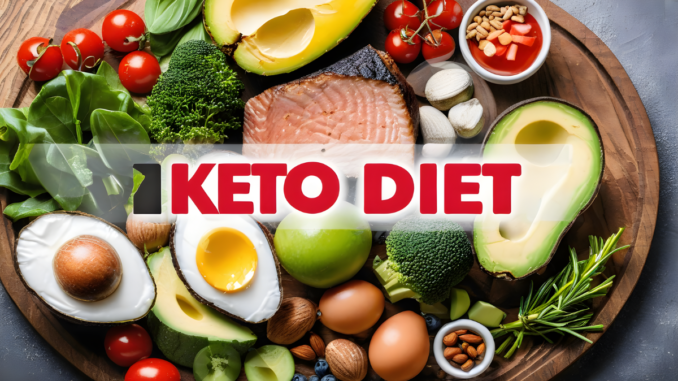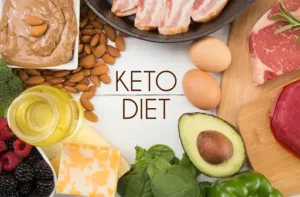
Introduction:
Welcome to the world of the Keto diet – a revolutionary approach to weight loss and overall health.
In this comprehensive guide, we’ll delve into the intricacies of the Keto diet, exploring how it works, breaking down meal plans, and discussing the advantages and disadvantages that come with this popular dietary trend.
Understanding the Keto Diet:
What is the Keto Diet?
The Keto short for ketogenic, is a low-carbohydrate, high-fat diet designed to induce a state of ketosis in the body.
Ketosis occurs when the body shifts its primary fuel source from glucose to ketones, derived from the breakdown of fats.
This metabolic state is the secret sauce behind the diet’s success.
How Does the Keto Diet Work?
The magic of the Keto Diet lies in its ability to force the body into ketosis.
By drastically reducing carbohydrate intake and increasing fat consumption, the body starts utilizing stored fats for energy, leading to weight loss.
This process also helps regulate blood sugar levels and improves insulin sensitivity.
- Low Carbohydrate Intake: The primary focus of the keto is to drastically reduce the consumption of carbohydrates. Typically, the daily carbohydrate intake is limited to around 20-50 grams, or even lower, depending on the individual and their specific goals.
- Increased Fat Intake: In place of carbohydrates, the keto emphasizes the consumption of healthy fats. This includes sources like avocados, nuts, seeds, olive oil, and fatty fish. The idea is to shift the body’s energy source from carbohydrates to fats.
- Moderate Protein Intake: Protein intake is moderate in the keto. Consuming too much protein may lead to gluconeogenesis, a process where the body converts excess protein into glucose, potentially hindering the induction and maintenance of ketosis.
- Ketosis: With reduced carbohydrate intake, the body’s glycogen stores become depleted. In the absence of sufficient glucose, the body begins to break down fats into ketones for energy. These ketones can then be used by the brain and other tissues as an alternative fuel source.
Crafting a Keto Diet Plan:
Building the Foundation: Macronutrient Ratios
To embark on a successful Keto journey, it’s crucial to maintain specific macronutrient ratios.
Typically, a Keto diet consists of approximately 70-75% fats, 20-25% proteins, and 5-10% carbohydrates.
This balance ensures the body remains in ketosis, maximizing fat burning.
Keto Diet Meal Ideas:
- Healthy Fats: Avocados, olive oil, butter, and fatty fish.
- Protein Sources: Meat, poultry, eggs, and dairy.
- Low-Carb Vegetables: Broccoli, cauliflower, spinach, and kale.
- Snack Options: Nuts, seeds, and low-carb berries.

Sample Keto Diet Meal Plan:
- Breakfast: Scrambled eggs with spinach and feta cooked in butter.
- Lunch: Grilled chicken salad with avocado and olive oil dressing.
- Dinner: Baked salmon with roasted broccoli and cauliflower.
Advantages and Disadvantages of the Keto Diet:
Advantages:
- Effective Weight Loss: Rapid fat burning is a hallmark of the Keto.
- Stabilized Blood Sugar: Helps regulate blood glucose levels, benefiting those with diabetes.
- Improved Mental Clarity: Some individuals report enhanced cognitive function while in ketosis.
Disadvantages:
- Initial Side Effects: The “Keto flu” may cause fatigue, headaches, and irritability during the first few days.
- Nutrient Deficiency: Limited food choices may lead to deficiencies in certain vitamins and minerals.
- Sustainability Challenges: The strict nature of the diet may be challenging for some individuals to maintain long-term.
Conclusion:
In conclusion, the Keto is a powerful tool for weight loss and overall health improvement.
By understanding how it works, creating a well-balanced meal plan, and being aware of its advantages and disadvantages, you can make informed decisions on whether the Keto is right for you.
Always consult with a healthcare professional before making significant dietary changes, and embark on your Keto journey with knowledge and confidence.
Leave a Reply